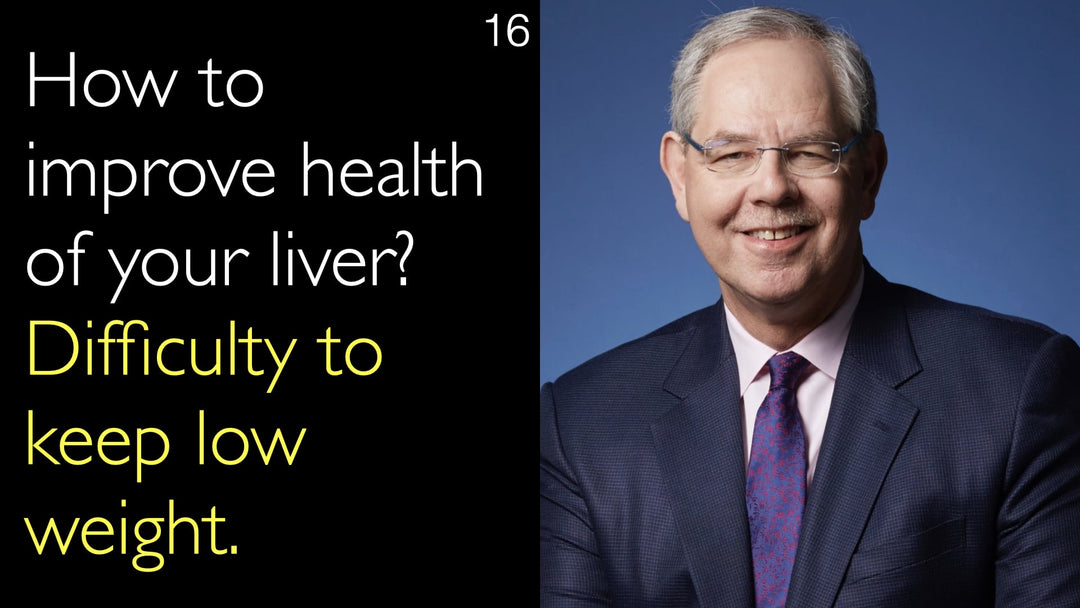Leading expert in multiple sclerosis, Dr. Howard Weiner, MD, explains the future of MS therapy. He details upcoming breakthroughs for progressive MS and the ultimate goal of a preventive vaccine. Dr. Howard Weiner, MD, emphasizes two critical patient-controlled actions: quitting smoking and maintaining normal vitamin D levels. He provides a clear roadmap for new patients to organize their treatment and follow-up care effectively.
Future of Multiple Sclerosis Treatment: Breakthroughs and Patient Strategies
Jump To Section
- Future MS Treatment Breakthroughs
- Progressive MS Therapy Advances
- Precision Medicine for MS
- New MS Patient Roadmap
- Lifestyle Factors in MS Control
- Vitamin D Importance in MS
- Full Transcript
Future MS Treatment Breakthroughs
The future of multiple sclerosis treatment holds transformative potential. Dr. Howard Weiner, MD, envisions a world with a vaccine to prevent MS entirely. This long-term goal focuses on identifying at-risk individuals, potentially even children, to stop the disease before it starts. Dr. Howard Weiner, MD, explains that while this ultimate breakthrough may be centuries away for civilization, it remains the definitive future direction for MS research and therapy development.
Progressive MS Therapy Advances
More immediate breakthroughs are expected for progressive forms of multiple sclerosis. Dr. Howard Weiner, MD, highlights that the near future will bring new medications specifically for secondary progressive MS (SPMS). These therapies aim to address the significant unmet need in slowing disability progression for patients in this advanced disease stage. The development of effective SPMS treatments represents a critical advancement in the multiple sclerosis therapeutic landscape.
Precision Medicine for MS
Treatment personalization is a key future trend in multiple sclerosis care. Dr. Howard Weiner, MD, discusses the emergence of precision medicine for MS. This approach will allow neurologists to decide which specific medication is best suited for an individual patient based on their unique disease characteristics. The move toward tailored therapy selection promises to optimize treatment efficacy and improve long-term outcomes for people living with multiple sclerosis.
New MS Patient Roadmap
Dr. Howard Weiner, MD, provides a clear treatment roadmap for newly diagnosed multiple sclerosis patients. The first step is consulting a neurologist or specialist experienced in MS care. Patients must then start a disease-modifying therapy medication promptly after diagnosis. Dr. Howard Weiner, MD, emphasizes the critical importance of regular MRI scans to monitor disease activity and treatment response, forming the foundation of appropriate long-term multiple sclerosis management.
Lifestyle Factors in MS Control
Certain lifestyle factors significantly impact multiple sclerosis progression independently of medications. Dr. Howard Weiner, MD, identifies smoking cessation as critically important. He states unequivocally that smoking makes multiple sclerosis worse and patients should stop immediately. This patient-controlled action can directly improve MS outcomes. Dr. Weiner's strong recommendation during his discussion with Dr. Anton Titov, MD, underscores smoking's profound negative effect on disease course.
Vitamin D Importance in MS
Vitamin D supplementation represents another crucial patient-managed aspect of multiple sclerosis care. Dr. Howard Weiner, MD, emphasizes that patients should maintain vitamin D levels within the normal range due to its importance for immune system function. This simple intervention is directly under patient control and complements medical treatments. Ensuring adequate vitamin D status provides a foundational support for the immune system in managing multiple sclerosis effectively.
Full Transcript
Dr. Anton Titov, MD: What does the future hold for multiple sclerosis treatment? What breakthroughs can patients with multiple sclerosis expect in the near future?
Dr. Howard Weiner, MD: One day we will have a vaccine for multiple sclerosis. Patients don't get multiple sclerosis. We will identify patients at risk or treat children, so no one gets multiple sclerosis. That is the long term.
Come back in a few hundred years. Okay, now for us a few hundred years is a lot. But for civilization it isn't a lot.
In the near future there will be more medications for progressive multiple sclerosis. There may be precision medicine. We can decide which medication a person should take.
Dr. Anton Titov, MD: A person may be diagnosed with multiple sclerosis somewhere in the world today. What can that person do to ensure that the treatment is selected correctly? How to organize follow-up in multiple sclerosis appropriately? Again, for somebody who could be living outside of the United States?
Dr. Howard Weiner, MD: The patient has to go to a neurologist or someone who knows how to treat multiple sclerosis. The patient has to start a multiple sclerosis medication. The patient has to have MRI scans done regularly.
Two things that I would say are very important that you don't need a doctor for: no smoking! Smoking is very, very bad for multiple sclerosis. Smoking makes multiple sclerosis worse.
Anybody who is smoking and gets multiple sclerosis should immediately stop smoking! It'll make the multiple sclerosis better.
Number two: patients should take vitamin D. Vitamin D is very important for the immune system. Their vitamin D levels should be in the normal range.
That is clearly something that is under the control of every patient with multiple sclerosis. That is correct!
The future in MS treatment brings more effective medicines for secondary progressive multiple sclerosis therapy. Eventually we will have a vaccine to prevent MS and biomarkers to identify people at risk for multiple sclerosis.







